A Comprehensive Guide
Indonesia is a country that is rich in natural resources, culture, and tradition. As a result, it is a popular destination for businesses looking to source products from the region. However, with so many options available, it can be challenging to identify the best sources for your needs. In this article, we will explore the hidden gems of Indonesian sourcing and what you need to know to make the most of this vibrant market.
Indonesian sourcing offers strategic advantages such as lower costs, access to unique products, and a skilled workforce. However, it also presents challenges such as language barriers, cultural differences, and logistical issues. To be successful in this market, it is essential to understand the unique characteristics of Indonesian sourcing and how to navigate these challenges. This article will provide an overview of Indonesian sourcing, explore the strategic advantages and challenges it presents, and offer tips for identifying hidden gems and building sustainable relationships.
Key Takeaways
- Indonesian sourcing offers unique strategic advantages but also presents challenges such as language barriers and cultural differences.
- Identifying hidden gems in Indonesian sourcing requires a deep understanding of the market and cultural considerations.
- Building sustainable relationships and leveraging technology can help businesses succeed in Indonesian sourcing.
Overview of Indonesian Sourcing
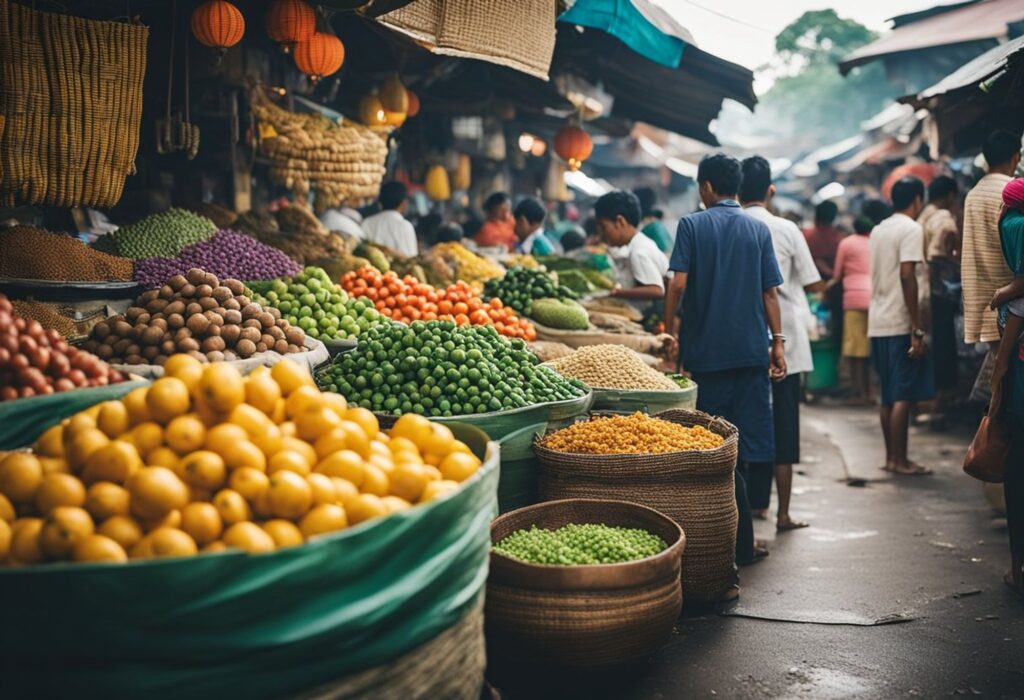
Indonesia is a country located in Southeast Asia that has become an increasingly popular destination for sourcing. With a population of over 270 million people, Indonesia has a large pool of skilled labor and abundant natural resources that have attracted foreign investors. This section will provide an overview of the economic landscape and key industries in Indonesia.
Economic Landscape
Indonesia is the largest economy in Southeast Asia and the fourth most populous country in the world. The country has experienced steady economic growth over the past decade, with an average annual growth rate of 5.2%. The Indonesian government has implemented policies to encourage foreign investment and promote exports, making it an attractive destination for businesses looking to source products.
The country’s strategic location also makes it an ideal hub for businesses looking to expand their operations in the Asia-Pacific region. Indonesia is situated between the Indian and Pacific Oceans, providing easy access to major shipping routes and markets.
Key Industries
Indonesia’s diverse manufacturing sector offers a wide range of products for sourcing. The country is known for producing textiles, footwear, furniture, electronics, and automotive parts. Indonesia is also a major producer of palm oil, rubber, and coffee.
One of the key advantages of sourcing from Indonesia is the competitive labor costs. The country has a large pool of skilled labor, and wages are lower than in many other countries in the region. This has made Indonesia an attractive destination for labor-intensive industries such as textiles and footwear.
Another advantage of sourcing from Indonesia is the country’s abundant natural resources. Indonesia is rich in minerals, such as coal, gold, and copper, and has significant reserves of oil and natural gas. The country is also home to vast forests, which provide a source of timber and pulp for the paper industry.
In summary, Indonesia’s growing economy, strategic location, competitive labor costs, and abundant natural resources make it an attractive destination for sourcing. The country’s diverse manufacturing sector offers a wide range of products, and the government has implemented policies to encourage foreign investment and promote exports.
Strategic Advantages

Geographical Benefits
Indonesia’s strategic location provides several advantages to businesses sourcing from the country. The country is located in Southeast Asia and is an archipelago consisting of over 17,000 islands. This location makes it a natural gateway to other Southeast Asian markets, including China, India, and Australia. Additionally, Indonesia is home to several major ports, including Tanjung Priok and Tanjung Perak, which are key shipping hubs in the region.
Workforce Dynamics
Indonesia’s workforce is another strategic advantage for businesses sourcing from the country. The country has a large and growing labor force, with a population of over 270 million people. Additionally, Indonesia has a relatively young population, with a median age of just 30 years. This means that businesses sourcing from Indonesia have access to a large pool of young and motivated workers.
Furthermore, Indonesia’s labor costs are competitive compared to other countries in the region. According to a source, the minimum wage in Indonesia is around $200 per month, which is lower than the minimum wage in China and Vietnam. This makes Indonesia an attractive destination for businesses looking to reduce their labor costs.
In conclusion, Indonesia’s strategic location and competitive labor costs make it an attractive destination for businesses looking to source products from Southeast Asia. With a large and growing population, Indonesia offers access to a motivated and young workforce. Additionally, the country’s proximity to other major markets in the region makes it an ideal gateway to other Southeast Asian markets.
Challenges in Indonesian Sourcing
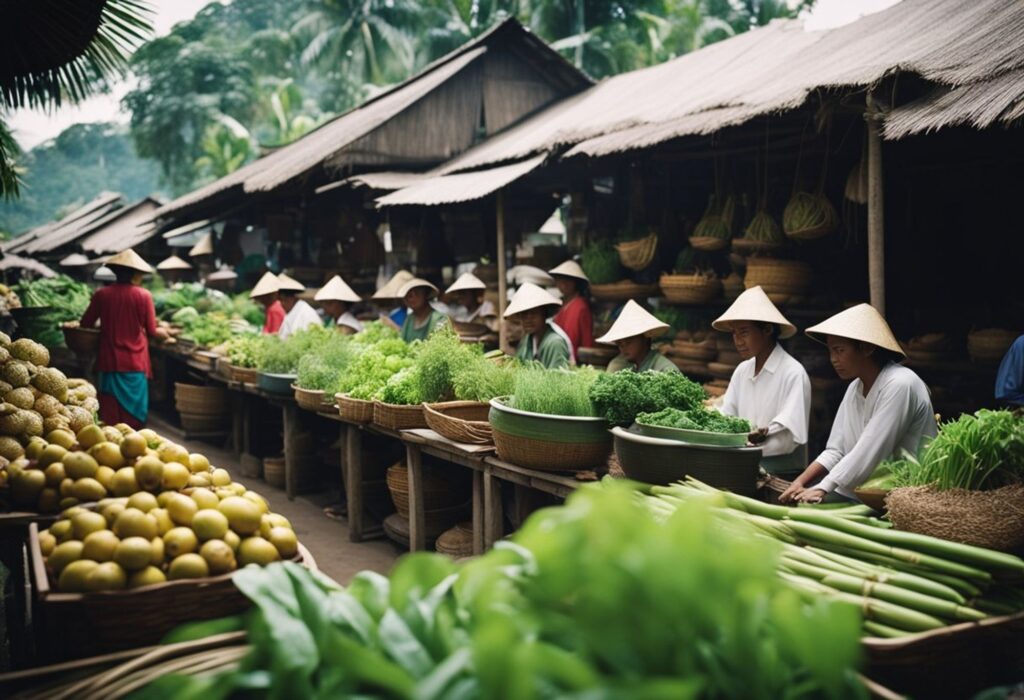
Indonesia has emerged as a popular sourcing destination for businesses due to its competitive labor costs, abundant natural resources, and strategic location. However, there are several challenges that companies may face when sourcing from Indonesia. This section will discuss the infrastructure issues and regulatory environment that businesses should be aware of before sourcing from Indonesia.
Infrastructure Issues
Infrastructure is a major challenge when sourcing from Indonesia. The country has a large population and vast geography, which makes transportation and logistics difficult. The road network is often congested and poorly maintained, which can lead to delays and increased costs. The ports and airports are also often congested, which can lead to long wait times for shipments.
In addition, Indonesia’s power supply is often unreliable, which can lead to production delays and increased costs. Many businesses have to rely on generators, which can be expensive to operate and maintain. The telecommunications infrastructure is also often unreliable, which can make it difficult to communicate with suppliers and customers.
Regulatory Environment
The regulatory environment in Indonesia can be challenging for businesses. The country has a complex legal system and a high level of bureaucracy, which can make it difficult to navigate. The government has also implemented policies that can be restrictive for foreign businesses, such as local content requirements and restrictions on foreign ownership.
Intellectual property protection can also be a challenge in Indonesia. The country has a weak legal framework for protecting intellectual property, which can make it difficult for businesses to protect their trademarks, patents, and copyrights. This can make it easier for counterfeit products to enter the market, which can damage a company’s reputation and bottom line.
In conclusion, while Indonesia offers many benefits as a sourcing destination, businesses should be aware of the infrastructure issues and regulatory environment that they may face. By understanding these challenges, businesses can develop strategies to mitigate them and optimize their supply chain operations.
Cultural Considerations
Indonesia is a country with a rich cultural heritage, and it is essential to understand the cultural nuances when doing business in the country. In this section, we will explore some of the cultural considerations that are important to keep in mind when sourcing from Indonesia.

Business Etiquette
Indonesians place a high value on personal relationships and trust in business dealings. Building a personal connection with your business partners is crucial. It is essential to take the time to get to know your Indonesian counterparts and establish a good rapport with them. This can be done by engaging in small talk and showing genuine interest in their culture and traditions.
Business meetings in Indonesia are typically formal affairs, and it is important to dress conservatively and arrive on time. When entering a meeting room, it is customary to greet the most senior person first. It is also important to address people by their formal titles, such as “Bapak” (Mr.) or “Ibu” (Mrs.) followed by their last name.
Negotiation Nuances
Indonesians prefer to negotiate in a non-confrontational manner. It is important to avoid aggressive or confrontational behavior during negotiations, as this can damage the relationship and harm the business deal. Instead, it is essential to approach negotiations with a respectful and collaborative attitude.
Indonesians also tend to be indirect in their communication style. This means that they may not say “no” outright, but instead, use non-verbal cues or polite language to express their disagreement. It is important to pay attention to these cues and adjust your approach accordingly.
In conclusion, understanding the cultural considerations of Indonesia is crucial when sourcing from the country. By taking the time to build personal relationships, respecting local customs and traditions, and approaching negotiations with a collaborative attitude, businesses can establish successful partnerships in Indonesia.
Identifying Hidden Gems
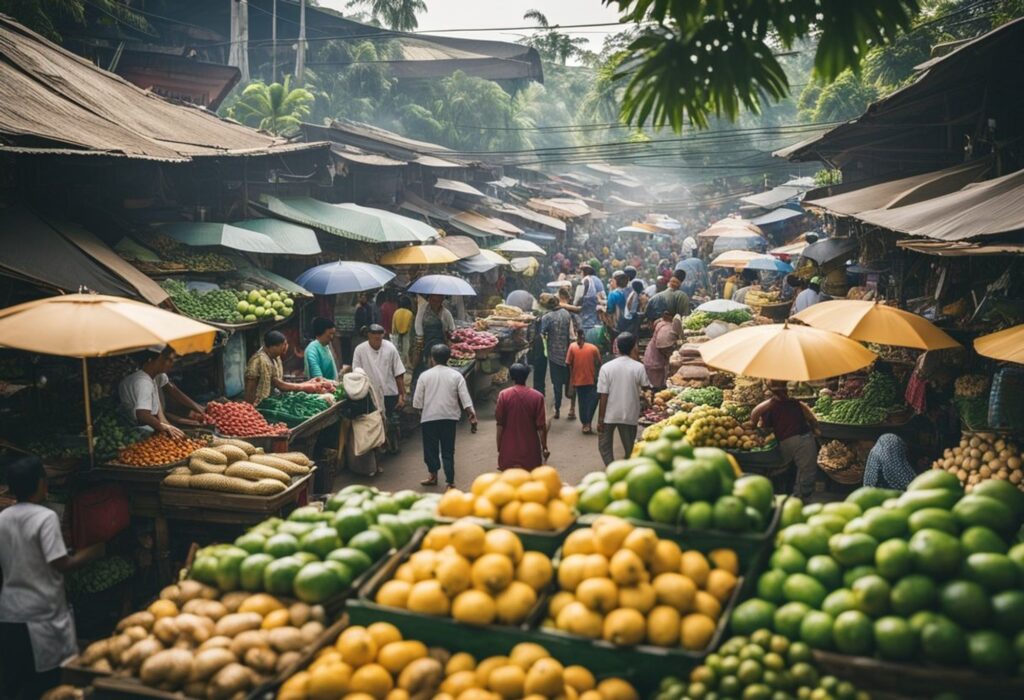
When it comes to sourcing from Indonesia, identifying hidden gems can be a game-changer for businesses. These hidden gems refer to emerging sectors and innovative products that are not yet widely known or recognized in the market. By identifying and sourcing from these hidden gems, businesses can gain a competitive advantage and potentially increase their profits.
Emerging Sectors
Indonesia is a country with diverse natural resources and a growing economy. As a result, there are many emerging sectors that are worth exploring for businesses looking to source from Indonesia. One such sector is the creative industry, which includes areas such as fashion, design, and handicrafts. The creative industry in Indonesia is growing rapidly and has the potential to become a major contributor to the country’s economy.
Another emerging sector in Indonesia is the halal industry. With a large Muslim population, Indonesia has become a hub for halal products and services. This sector includes food and beverage, cosmetics, pharmaceuticals, and tourism. By sourcing from the halal industry, businesses can tap into a growing market and cater to the needs of Muslim consumers.
Innovative Products
In addition to emerging sectors, there are also innovative products that can be considered hidden gems in Indonesia. One such product is the tempeh burger, which is a plant-based alternative to traditional meat burgers. Tempeh is a traditional Indonesian food made from fermented soybeans, and the tempeh burger has gained popularity in recent years as a healthier and more sustainable option.
Another innovative product in Indonesia is the bamboo bicycle. Made from sustainable bamboo, these bicycles are not only eco-friendly but also durable and stylish. By sourcing bamboo bicycles, businesses can appeal to consumers who are environmentally conscious and looking for unique products.
In conclusion, identifying hidden gems in Indonesia can be a valuable strategy for businesses looking to source from the country. By exploring emerging sectors and innovative products, businesses can differentiate themselves in the market and potentially increase their profits.
Building Sustainable Relationships
Sustainable sourcing is a crucial aspect of any procurement strategy. It involves identifying and selecting suppliers who are committed to sustainability and who can demonstrate they meet environmental, social, and governance (ESG) criteria. Building sustainable relationships with suppliers is essential for companies that want to reduce their environmental impact and operate ethically.

Long-Term Partnerships
One of the key ways to build sustainable relationships with suppliers is through long-term partnerships. By working closely with suppliers over an extended period, companies can develop a deeper understanding of their sustainability performance and identify areas for improvement. Furthermore, long-term partnerships can help suppliers to invest in sustainable practices, such as renewable energy, waste reduction, and responsible sourcing.
Ethical Sourcing Practices
Another critical element of sustainable sourcing is ethical sourcing practices. This involves ensuring that suppliers adhere to ethical standards, such as fair labor practices, human rights, and anti-corruption policies. Companies can achieve this by developing a supplier code of conduct outlining their expectations for environmental and social performance. Additionally, companies should engage with suppliers to foster collaboration and continuous improvement in sustainability performance.
To ensure ethical sourcing practices, companies should conduct regular audits of their suppliers’ operations. These audits should include a review of supplier policies, procedures, and performance against ESG criteria. Companies should also consider engaging with third-party auditors to provide an independent assessment of their suppliers’ sustainability performance.
By building sustainable relationships with suppliers, companies can reduce their environmental impact, operate ethically, and create long-term value for their stakeholders. Companies that prioritize sustainability in their procurement strategies will be better positioned to meet the demands of consumers, investors, and regulators who are increasingly focused on sustainability.
Leveraging Technology in Sourcing
In the digital age, technology has become an essential tool for businesses to stay competitive and efficient. The same is true for sourcing. Leveraging technology can help businesses in Indonesia to streamline their sourcing processes, find new suppliers, and make data-driven decisions.
Digital Platforms

Digital platforms have revolutionized the way businesses source products and services. Online marketplaces like Alibaba and Amazon have made it easier for businesses to find suppliers from all over the world. These platforms offer a wide range of products and services, allowing businesses to compare prices, quality, and delivery times.
In addition to online marketplaces, there are also sourcing platforms that are specifically designed for businesses. These platforms offer features like supplier management, RFQ (Request for Quotation), and analytics. By using these platforms, businesses can manage their sourcing processes more efficiently, reduce costs, and improve supplier relationships.
Data-Driven Decision Making
Data-driven decision making is another area where technology can help businesses in Indonesia to improve their sourcing processes. By using data analytics tools, businesses can analyze supplier performance, track key metrics, and identify areas for improvement. This information can help businesses to make more informed decisions about which suppliers to work with, which products to source, and how to negotiate prices.
In addition to analytics, businesses can also use automation tools to improve their sourcing processes. For example, automated RFQ tools can help businesses to send out requests to multiple suppliers at once, reducing the time and effort required to manage the sourcing process.
Overall, technology has the potential to revolutionize sourcing in Indonesia. By using digital platforms, data analytics, and automation tools, businesses can streamline their sourcing processes, find new suppliers, and make data-driven decisions.
Case Studies

Success Stories
Indonesia has emerged as a top sourcing destination for companies worldwide. Many companies have successfully established their supply chain in Indonesia, which has led to a significant reduction in production costs and increased profitability. One such success story is the case of PT. XYZ, a US-based company that specializes in the production of automotive parts. The company was facing stiff competition from its rivals due to high production costs. After conducting extensive research, PT. XYZ decided to shift its sourcing operations to Indonesia. The company was able to take advantage of Indonesia’s low labor costs and favorable government policies. As a result, PT. XYZ was able to reduce its production costs by 30% and increase its profit margins by 15%.
Another success story is the case of PT. ABC, a European company that specializes in the production of textiles. The company was facing challenges due to the high cost of raw materials and labor in Europe. After exploring various options, PT. ABC decided to shift its sourcing operations to Indonesia. The company was able to benefit from Indonesia’s abundance of raw materials, low labor costs, and favorable trade policies. As a result, PT. ABC was able to reduce its production costs by 25% and increase its profit margins by 10%.
Lessons Learned
While Indonesia offers several benefits as a sourcing destination, there are also some challenges that companies need to be aware of. One of the key challenges is the lack of infrastructure in some parts of the country. This can lead to delays in the transportation of goods and increase logistics costs. Companies need to carefully evaluate the infrastructure in the areas they plan to source from before making any decisions.
Another challenge is the complex regulatory environment in Indonesia. Companies need to be aware of the various regulations and laws related to sourcing, labor, and taxes. Failure to comply with these regulations can result in fines and legal action. Companies need to work closely with local partners and seek expert advice to navigate the regulatory landscape.
In conclusion, Indonesia offers several benefits as a sourcing destination, including low labor costs, favorable government policies, and an abundance of raw materials. However, companies need to be aware of the challenges and take steps to mitigate them. By carefully evaluating the infrastructure, working closely with local partners, and complying with regulations, companies can successfully establish their supply chain in Indonesia and reap the benefits of lower production costs and increased profitability.
Frequently Asked Questions
What unique products are available through Indonesian sourcing?
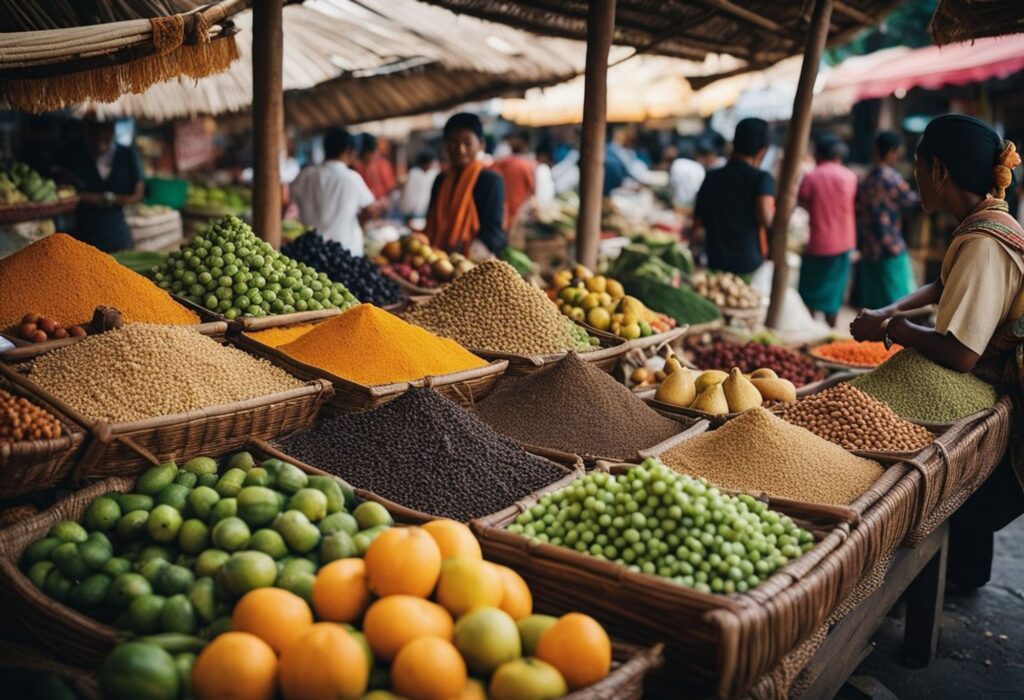
Indonesia offers a wide range of unique products that are available through sourcing, including textiles, furniture, handicrafts, and agricultural products such as coffee, cocoa, and spices. The country’s diverse geography and cultural heritage have contributed to the development of these unique products.
How does Indonesia’s geography influence its sourcing opportunities?
Indonesia’s geography plays a significant role in its sourcing opportunities. The country is made up of thousands of islands, each with its own unique climate and natural resources. This diversity allows Indonesia to produce a wide range of products, from tropical fruits to minerals and precious metals.
What are the top export commodities of Indonesia?
Indonesia’s top export commodities include coal, palm oil, rubber, textiles, and natural gas. These commodities make up a significant portion of the country’s economy and are in high demand in international markets.
How can businesses ensure ethical sourcing practices in Indonesia?
Businesses can ensure ethical sourcing practices in Indonesia by working with reputable suppliers and conducting due diligence to ensure that their suppliers adhere to ethical and sustainable practices. This includes ensuring fair labor practices, environmental sustainability, and responsible sourcing of raw materials.
What challenges do importers face when sourcing from Indonesia?
Importers face several challenges when sourcing from Indonesia, including navigating complex regulations, dealing with language barriers, and managing logistics and transportation. Additionally, cultural differences and business practices can also pose challenges for importers.
How do Indonesian cultural practices affect business negotiations and sourcing?
Indonesian cultural practices can have a significant impact on business negotiations and sourcing. Building relationships and establishing trust is essential in Indonesian business culture, and negotiations may take longer than expected. Additionally, understanding cultural norms and customs can help importers navigate business practices and build successful partnerships with Indonesian suppliers.
Uncover The Hidden Gems of Indonesian Sourcing with Buyamia!
Dive into the secrets of sourcing high-quality products from Indonesia’s vibrant markets. Learn everything you need to know to find reliable suppliers and unique items. Click here to explore our expert guide and transform your sourcing strategy today!
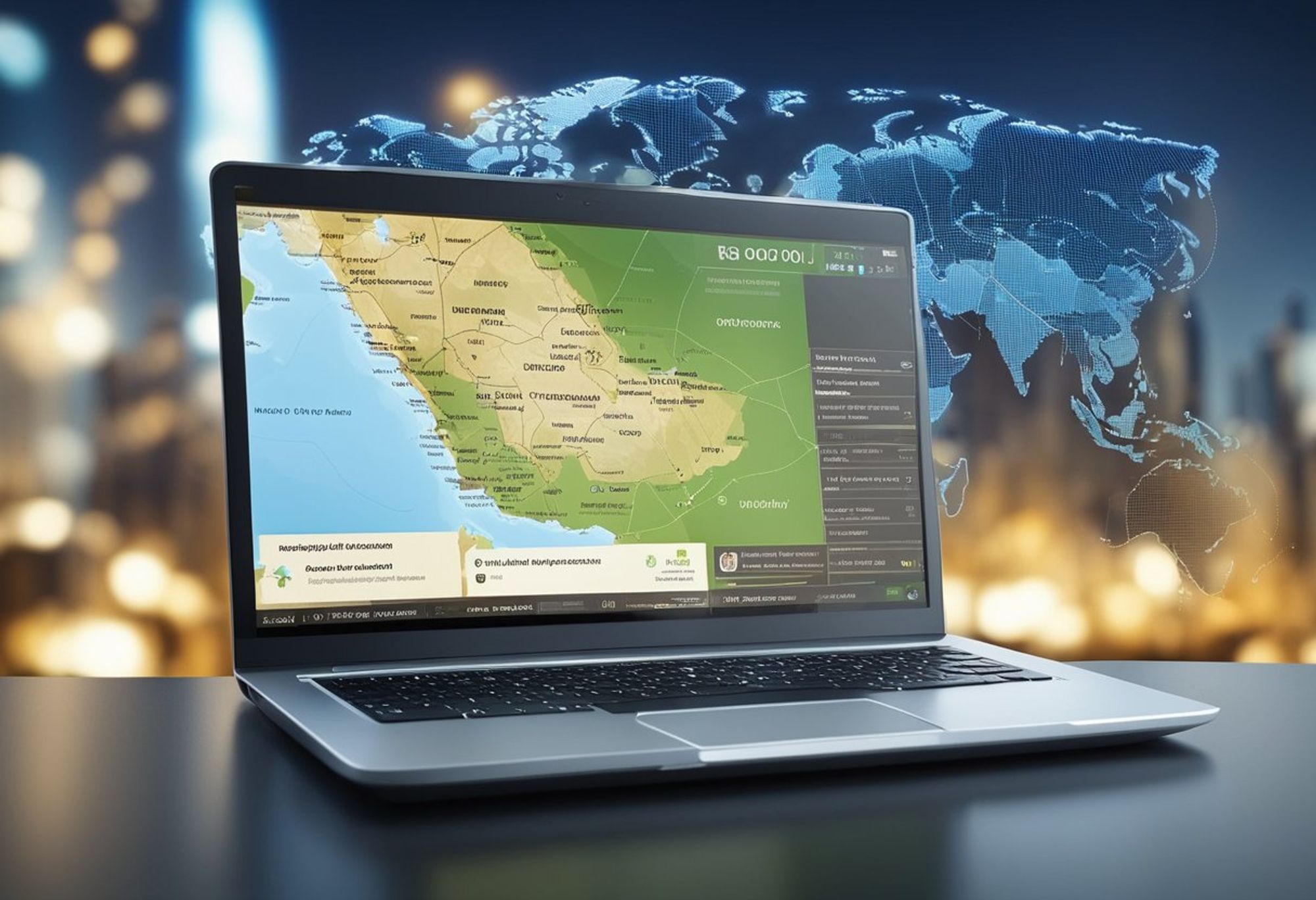
Leave a Reply